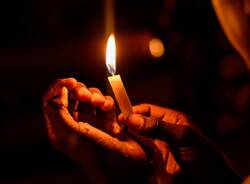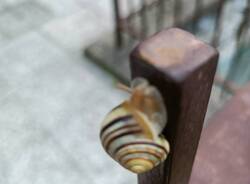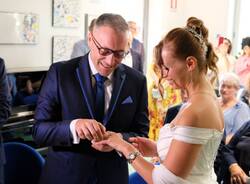Women and gambling, a growing, but still hidden problem
Because of the considerable social stigma, many women find it difficult to ask for help. An international study by two women scientists could become a tool to prevent and combat the addiction.

Often considered as a hidden and underestimated problem, compulsive gambling among women is an increasingly widespread phenomenon in Italy and in other parts of the world. Female compulsive gambling was the focus of the meeting, on Thursday 25 March, on the Alumni Insubria channel, moderated by the journalist Silvia Milone. During the evening, the book “Gambling Disorders in Women: An International Female Perspective on Treatment and Research” by Fulvia Prever and Henrietta Bowden-Jones, was presented.
Gambling is any type of game in which money (or other valuables) can be won, where winning does not depend on the player’s skill, but only on chance. Gambling becomes pathological (compulsive) when the gratification of the winning and the pleasure of the risk turn into a craving and become addictive.
It has been shown that, in general, it is easier for women to realise that they have a problem and seek help than it is for men. However, this is not true for compulsive gambling. “Women who gamble suffer greater social stigma than men. This, together with the sense of guilt when they think of their families, make women more fragile and less inclined to ask for help. These women need a protected place where they can discuss and find help, away from the stigma. The relational aspect is indeed crucial in combating compulsive gambling, as is the support of the family and of a partner. For men who are addicted to gambling, the support of family members is always there, but in most cases, women face therapy alone,” explained Fulvia Prever, psychologist, psychotherapist and president of the Varenna Foundation.
“The real welfare of our society is women. When something can be done but is not done for women, it is equivalent to not taking care of our future: mothers, women are the only ones who can fully take care of future generations. Let’s help those who have to help them,” said Savino Accetta, a representative of the non-profit association “La Banda degli Onesti Onlus” and member of the civic network “Noslot Milano”.
But what can we do from a legal and an educational point of view? Paola Biavaschi, a jurist and legal historian at the University of Insubria, answered this question. “Fortunately, the State has changed its approach. Since 2011, there have been greater controls on gambling, and compulsive gambling has been recognised as a disease. However, there is a need to educate the new generations, to use public facilities to raise awareness of the issue and to turn the proceeds from gambling into charitable actions. This is why an even more rational measure is required from a legal point of view.”
Gambling and the pandemic
With the closure of bars and amusement arcades, the pandemic has been a breath of fresh air for some women gamblers, but for others, it has aggravated an already delicate situation. “With the lockdown,” Prever added, “many women in therapy felt relief, and only a small number switched to online gambling. For those who hadn’t embarked on this path, it was more difficult. There was an increase in the number of requests for drugs, in eating disorders, and sometimes the distress due to addiction added to situations of violence made worse by enforced cohabitation.”
Young people and gambling
With the development of online gambling, compulsive gambling has also been on the rise among young people. “In a study carried out at our university,” explained Paolo Bozzato, a lecturer in the Social Psychology of Communication at the University of Insubria, “431 out of 560 young people gamble, 75% of them online.”
“We collected the testimonies of 3000-3500 adolescents,” said Savino Accetta, “and discovered not only that the average expenditure on gambling has increased, but also that, in 40% of cases, the parents of the young people who play online know about it and let them use their cards. We know that if someone lives in a situation in which a certain behaviour is accepted, they tend more easily to adopt that behaviour.”
In any case, pathological gambling among young people has remained a predominantly male phenomenon. “Very few girls get caught up in the gambling spiral,” said Fulvia Prever. “The women we help are all of a certain age. They are usually women who have spent a lifetime working, looking after children and grandchildren, and they are looking for a moment of gratification all to themselves.”
The book “Gambling Disorders in Women: An International Female Perspective on Treatment and Research” can be downloaded free of charge from the main online shops. The authors wanted to outline compulsive gambling in women and to provide professionals with a shared understanding of the evidence-based treatment and recovery, starting with the literature and research on problem gambling.
Translated by Denise Mura, Vittoria Bonanomi and Sarah Guarneri
Reviewed by Prof. Rolf Cook
La community di VareseNews
Loro ne fanno già parte
Ultimi commenti
GrandeFratello su Vandalizzato il belvedere di San Fermo che i residenti stavano ripristinando
lenny54 su Dal 1° agosto scatta l'aumento sul servizio Malpensa Express da Milano all'aeroporto
Roberto Ganna su Elsa Fornero a Varese: “Abbiamo tolto futuro ai giovani. Ora dobbiamo restituirglielo”
Baffetta su Elsa Fornero a Varese: “Abbiamo tolto futuro ai giovani. Ora dobbiamo restituirglielo”
Fabrizio Tamborini su Elsa Fornero a Varese: “Abbiamo tolto futuro ai giovani. Ora dobbiamo restituirglielo”
Alessandro Zanzi su Elsa Fornero a Varese: “Abbiamo tolto futuro ai giovani. Ora dobbiamo restituirglielo”















Accedi o registrati per commentare questo articolo.
L'email è richiesta ma non verrà mostrata ai visitatori. Il contenuto di questo commento esprime il pensiero dell'autore e non rappresenta la linea editoriale di VareseNews.it, che rimane autonoma e indipendente. I messaggi inclusi nei commenti non sono testi giornalistici, ma post inviati dai singoli lettori che possono essere automaticamente pubblicati senza filtro preventivo. I commenti che includano uno o più link a siti esterni verranno rimossi in automatico dal sistema.